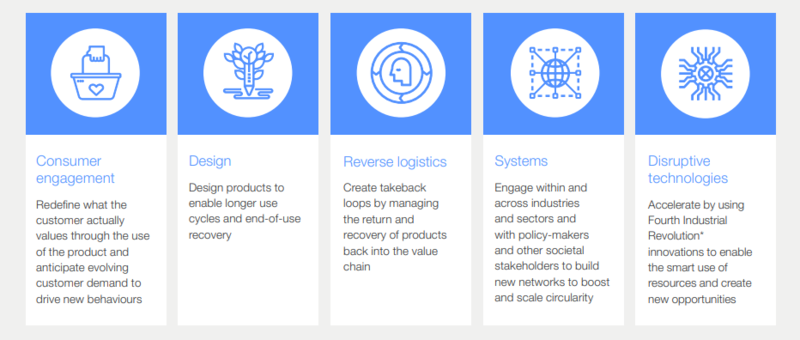Climate Governance and the Circular Economy: A Primer for Boards
This guide, developed by the World Economic Forum, the Climate Governance Initiative and Accenture, provides board directors with practical insights on the role of the circular economy in achieving climate and environmental commitments, while creating business value and resilience.
The transition to circular business models is essential for organisations to meet climate targets and achieve net zero emissions. The traditional linear economic model is resource intensive and harmful to the environment. While on the other hand, the circular economy reduces waste, provides sustainable alternatives and is key to system change. Board directors have a key role to play in driving this transformation.
The circular economy not only benefits the environment, but also offers financial value, operational efficiency and resilience, which is estimated at USD 4.5 trillion by 2030. Consumer preferences support the circular economy, while strengthening supply chains and reducing the risks of resource scarcity.
Businesses should start their circular journey by setting clear targets aligned with existing climate goals. Five key enablers include consumer engagement, design, reverse logistics, systems, and disruptive technologies. Collaboration is essential to share benefits and risks. To achieve this, companies need to embed circularity throughout the organisation with clear governance, leadership, accountability and incentives. Every function has an important role to play, from CFOs reporting on circularity targets to CTOs enabling circularity.

In addition, standardised frameworks, emerging regulations and stakeholder demands for ESG reporting are increasing the pressure to disclose the links to circularity and emissions. Companies should invest in ESG data and measurement infrastructure.
With a good understanding of this toolkit, board directors can inspire their companies to embrace circular transformation, realising financial value, supply chain decarbonisation and operational resilience.